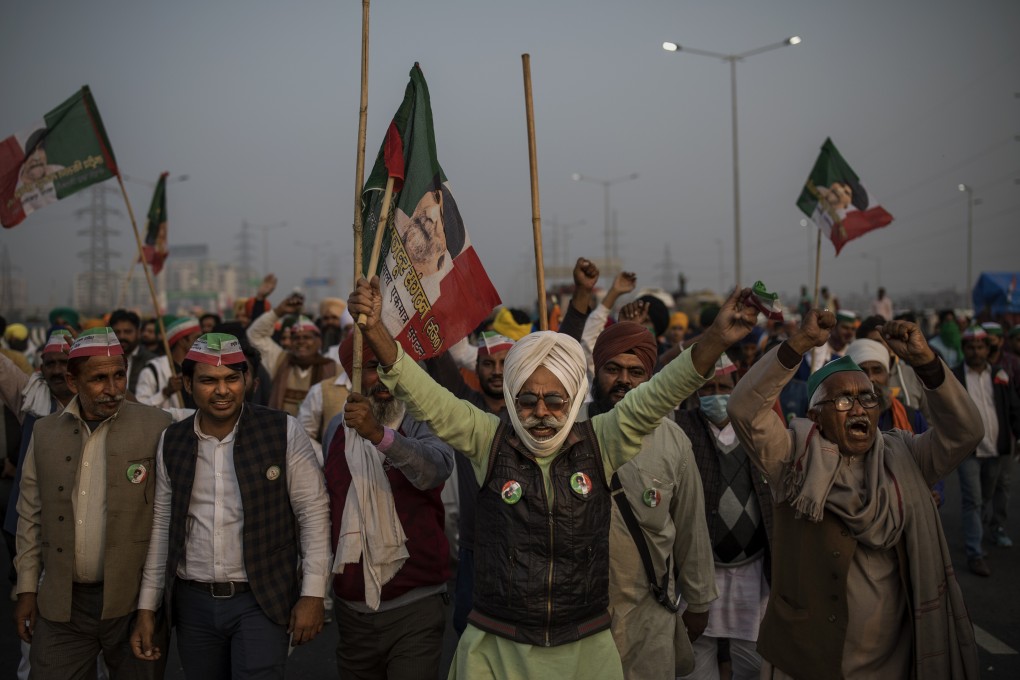Explainer | Why are India’s farmers protesting, and will Modi reap what he sows?
- Millions of farmers across India are protesting against new laws they say will leave them vulnerable to predatory private corporations
- The BJP government might not have backed down, yet, but there are signs it is worried about the effect on its electoral chances

The new laws allow private buyers to bypass government-controlled markets that, among other things, help to ensure farmers receive a minimum price for their crops. The government says the laws, enacted in September, are necessary to modernise the largely state-regulated sector, but farmers fear the new rules will be abused by larger corporate players and endanger the minimum pricing system.
Protests have shut roads and shops across the country, with demonstrators blocking highways and railway lines in several states, but have remained largely peaceful so far.
Talks between farmer leaders and Home Minister Amit Shah – the highest official to engage so far – have elicited a lukewarm response. A meeting with Agriculture Minister Narendra Tomar that had been due to take place on December 9 was cancelled so the farmer representatives could study an offer by the government.
The draft proposal included a promise to amend elements of the laws but not rescind them altogether. But the protesting farmers want nothing short of repealing the legislation.
“The government is not ready to take back the farm laws,” said Hannan Mollah, General Secretary of All India Kisan Sabha, an umbrella body of farmers unions.